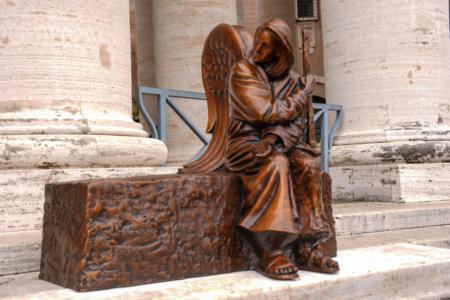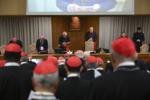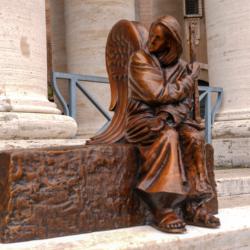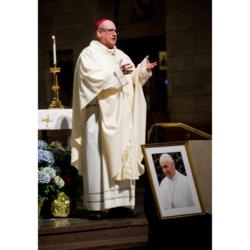Duty of fraternal correction
Q. Is it not our duty to point out when a friend is committing a sin? Otherwise, if we don't try to save the soul of a sinner, then we too can be found guilty. But even beyond that, I don't want to see someone risk not being with God throughout eternity because of my failure to point out his error.
My friends and I were discussing this over dinner the other night, and their view was that it is none of our business and, if a person claims to be a Christian, they should already know that what they're doing is wrong. (Virginia Beach, Virginia)
A. I am on your side of this argument, and I would take issue with your dinner friends. I would quote to them Matthew's Gospel, which in the New American Bible reads: "If your brother sins (against you), go and tell him his fault between you and him alone. If he listens to you, you have won over your brother" (18:15).
Though the phrase "against you" might be taken to limit the sin in question to a personal offense, it is important to note that the common interpretation of Catholic theologians extends the meaning to whatever serious offense comes to a person's notice -- and also that the phrase "against you" does not appear in some of the earlier scriptural codices.
Note also that St. Paul comments on the duty of fraternal correction in Galatians, where he says that "if a person is caught in some transgression, you who are spiritual should correct that one in a gentle spirit" (6:1).
I remember, though, reading what St. Anthony Mary Claret said were the circumstances that warranted fraternal correction; not only, he said, must it have been a grave offense, but there must be a reasonable hope that the person will accept the correction.
Q. One thing in the Gospels about which I've always been curious is why, after casting out a demon or performing some other miracle, Jesus would often command that witnesses "tell no one." Wouldn't a wider knowledge of these miracles have helped his ministry? (Indiana)
A. You are correct in observing that often Jesus would ask observers to keep his miracles secret. Examples abound. In Matthew's Gospel we are told that many people followed Christ and he "cured them all" but "warned them not to make him known" (12:15).
In Mark, we learn that "he had cured many and, as a result, those who had diseases were pressing upon him to touch him" but that "he warned them sternly not to make him known" (3:10, 12); and in Luke, we read that, after he had raised the daughter of Jairus from the dead, "her parents were astounded, and he instructed them to tell no one what had happened" (8:56).
The fundamental reason for Jesus' reluctance to spread news of his miracles, I believe, was this: Jesus did not want people to be distracted from what he really came to do -- namely, the ministry of the word.
In Mark, Jesus had told his disciples, "Let us go on to the nearby villages that I may preach there also. For this purpose have I come" (1:38). His concern was that the crowds would be dazzled by the miracles rather than give their attention to the lessons he had come to teach.
- Father Kenneth Doyle is a columnist for Catholic News Service



















